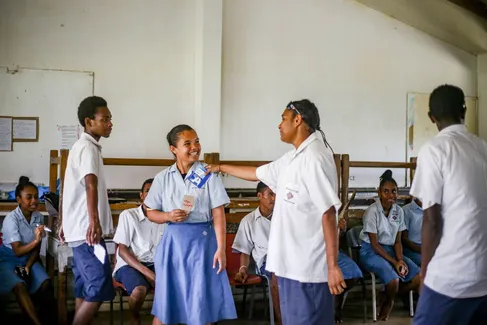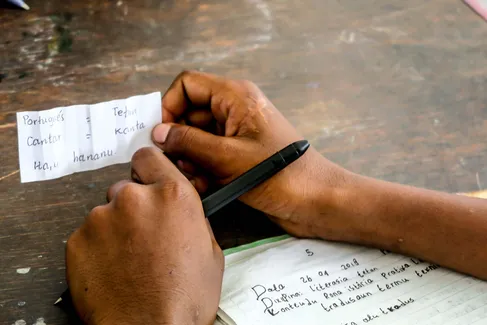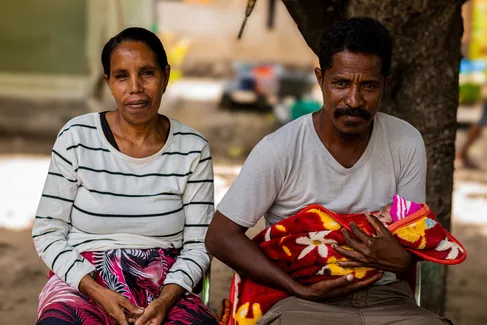Improving Patient Care Through Digital Micro-Learning for Hospital Staff
An independently validated approach to delivering continuous learning to healthcare professionals in two PNG hospitals.
Papua New Guinea
Purpose
Improve quality of care for patients through training for staff at two major hospitals in Papua New Guinea
Approach
A culturally relevant blended learning program incorporating mobile-first microlearning embedded in day-to-day responsibilities.
Mobile app for flexible learning, with offline functionality for low connectivity areas
Impact
- Over 300 health staff actively used the Kumul Helt Skul to improve their knowledge and skills during the pilot.
- 12.9% mean increase in knowledge compared to the pre-training exam
- Statistically significant improvements in confidence in 13 of 15 clinical tasks, including triage assessment and identifying an unwell patient
- 100% agreed the online learning platform was easy to access, use and navigate, and that the digital teaching methods were appropriate for their learning needs
- In a recent independent evaluation, 100% of learners found the app easy to use.
- In the period between May 2021 and March 2023, the 28 courses on Kumul Helt Skul were fully completed 950 times by staff at ANGAU Hospital and there has been significant interest from other hospitals and health facility staff to do the training.
Partners
PNG's National Department of Health (NDoH), and supported by the Australian Government through the PNG-Australia Partnership.
Health partners include the Australian College of Emergency Medicine, the Australian College of Perioperative Nurses, the Burnet Institute and the University of Technology Sydney.
Life long learning
Kumul Helt Skul is an innovative pilot programme, developed together with the National Department of Health, and designed to provide engaging, flexible learning to improve quality of care for patients. Catalpa developed the skills training experience and co-designed content in partnership with health experts, with the design also reflecting Papua New Guinean heritage and culture. The program was offered in two major hospitals in Papua New Guinea: ANGAU Memorial and Port Moresby General Hospitals.
The program offered online skills training via smartphone using Bero (our mobile learning platform) supported by in-person tutorials and video conference sessions. The face-to-face opportunities were designed to reinforce content delivered through the online platform, and to address site-specific challenges.
Using a blended learning approach, the pilot program was designed to ensure busy healthcare workers in low resourced hospitals could access and benefit from meaningful staff professional development opportunities. The program emphasised maintaining user engagement by ensuring it was appropriate for busy health care professionals in low-resource settings.

Most of my courses were done at home on my day off, or after work when I had finished cooking and taking care of the little ones.

Courses covered a range of topics such as infection control, birthing, and working in operating theaters, and emergency departments, using the microlearning approach to deliver short bursts of learning content that can be completed in 5 - 10 minutes. Training can be completed anywhere, anytime even in areas of limited connectivity, by making courses downloadable for offline learning. Courses and exams completed offline are synced once an internet connection is restored. Virtual real-time sessions in areas such as emergency medicine and infection prevention & control, were held with partner trainers with hospital staff. This supplemented and reinforced digital learning on the platform.
In early 2023, an independent evaluation of the program was published in The Lancet Regional Health - Western Pacific validating the digital learning approach for resource-limited hospitals when coupled with peer mentoring and embedded in a broader development program.

I see the future of learning in this online format. “People over the age of 45 especially liked the online learning platform. It's something new to them and they were satisfied that they were able to participate.




